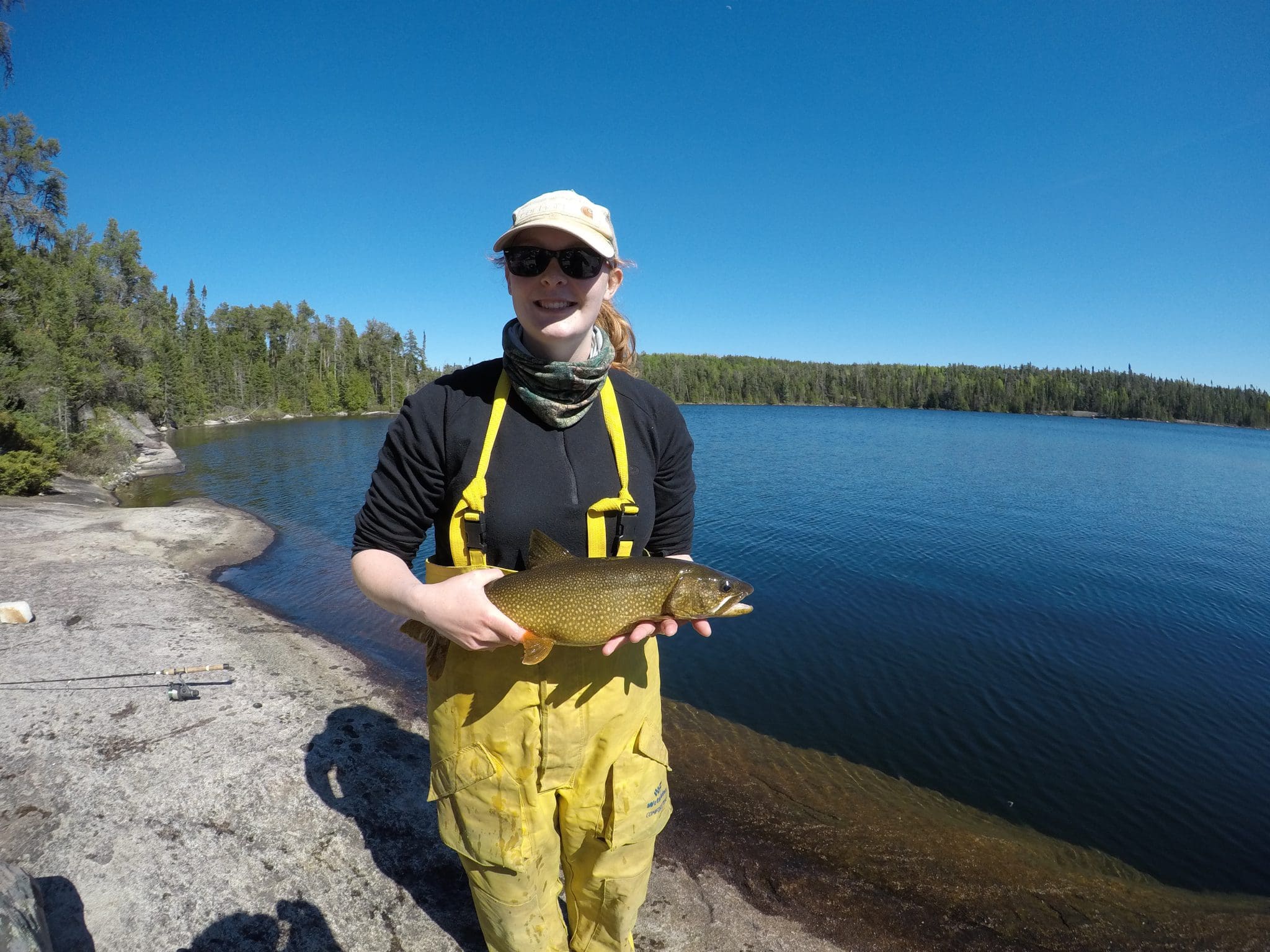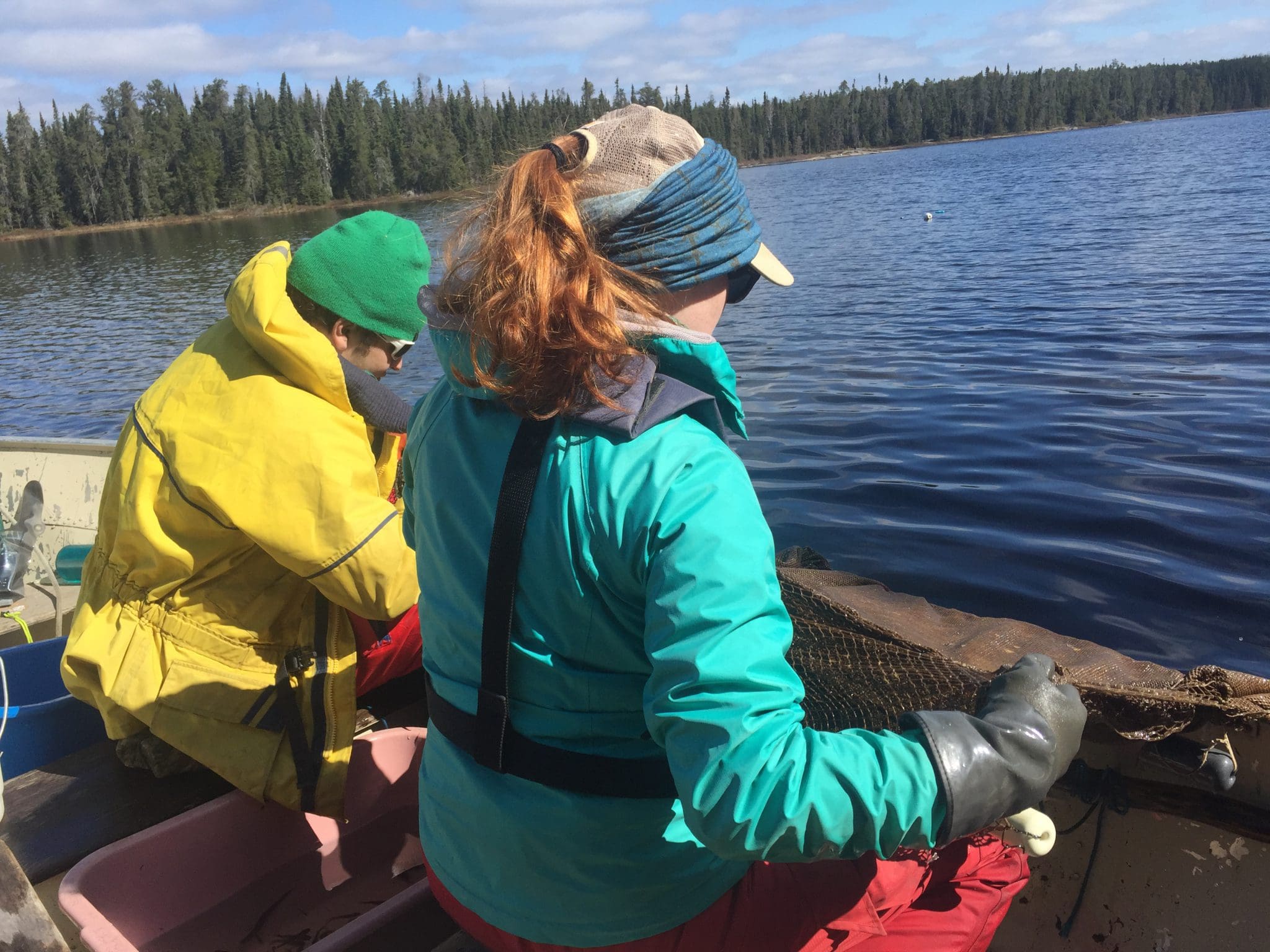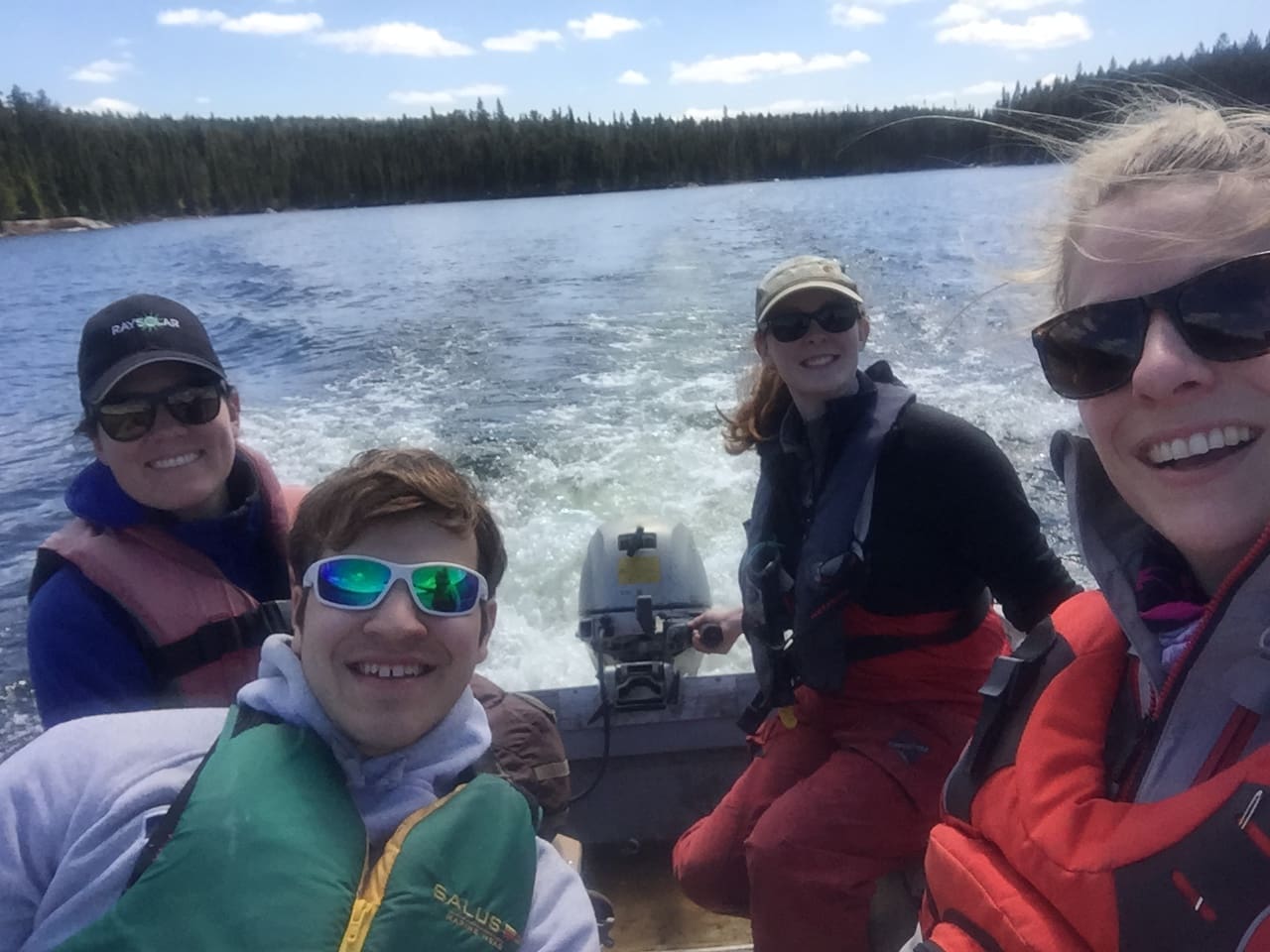Team August 21, 2017
Training the Limnologists of Tomorrow: In their own words
By Catelyn Van Veen
Here at IISD Experimental Lakes Area, we are always looking to educate and nurture the limnologists of tomorrow. A major part of that educative role involves inviting summer students from across the country to come and actively participate in the work we do, to broaden their skill set and to try out their own ideas at our unique freshwater research facility.
But what journey do students take to get here? And how do they find the experience? Catelyn Van Veen recently graduated from the University of Alberta with a Bachelor of Science, specializing in Ecology. This summer she was hired as one of two fisheries research assistant students at IISD Experimental Lakes Area (IISD-ELA). We sat down with Catelyn to learn more about her experience at the lakes.

How did you first come to learn of IISD-ELA?
Throughout my university career, the groundbreaking research conducted over the last 50 years at IISD Experimental Lakes Area was often woven into my courses. Through these discussions, I quickly realized that IISD-ELA’s research goals aligned perfectly with my values as an environmental student and as a scientist. Needless to say, I was thrilled to find out that I had been offered a summer position at IISD-ELA for the 2017 field season!
I can confidently say that I have learned more at IISD-ELA this summer so far than in any single university course that I ever completed!
How has your experience been so far?
My experience so far as been nothing short of remarkable.
The atmosphere at camp is a learning-based environment, and people of all career levels are welcomed. Each year a handful of undergraduate students is hired to work alongside graduate students and professional scientists. Life at the IISD-ELA camp proves that learning does not end in the classroom. I can confidently say that I have learned more at IISD-ELA this summer so far than in any single university course that I ever completed! In fact, every Wednesday night we have a seminar led by IISD-ELA scientists or an external researcher. These seminars are to discuss these individuals’ past or current research, and to share their wealth of knowledge with the group.
The interactions that I am having at camp with the other scientists are shaping me as a young biologist. As a student at IISD-ELA, I am exposed to leading professionals of many varying specialties, such as fish, zooplankton, chemistry, toxicology, etc., and this exposure allows me to appreciate the full magnitude of aquatic science.

What’s it like working with IISD-ELA researchers?
Working alongside IISD-ELA staff and student researchers has been an uplifting experience. There is a very real sense of community among all people at camp, and we are forming lifelong connections centred around science and friendship. There are people from a variety of unique backgrounds at camp, but we all come together and focus on efforts on one common theme—science.
As a young woman entering science, I find it very empowering to be working alongside the many strong female role models and mentors at camp. Specifically, Lee Hrenchuk and Chandra Rodgers, the two women under whom I directly work, are great examples of these role models. They are the definition of “can-do” people, and amazing women to work with. Friendly to everyone, both Lee and Chandra are making my employment at IISD-ELA nothing but enjoyable.
Where do you go from here?
My future career aspirations are in fisheries conservation and research, which is a prefect progression from my position on the IISD-ELA Fish Crew this summer. Non-lethal sampling practices are the gold standard at camp, with a “minimal mortality” policy, which, once again, aligns with my values as a scientist. Thus far I have been involved with using trap nets for population estimates and monitoring; using acoustic telemetry tags to determine fish behaviour; performing fish lavages to examine fish diet; seine netting; and data management on both long-term references lakes and lakes that have undergone or are currently undergoing experiments.
Moreover, I am exposed to leading-edge sampling techniques, such as mucus sampling for stress indicators, fish ultrasound technology to determine liver and gonad characteristics non-lethally, environmental DNA characterization—the list goes on. Being a young environmental student, having recently completed my undergraduate degree, it is extremely refreshing to start my career as a biologist with people who share my passion for the environment and scientific advances.
Without a doubt in my mind, this is the best possible summer job I could have gotten! I feel much more prepared for my career to come and am so grateful to have found such a welcoming group of people with whom to start my career.
I am extremely thankful for the opportunity to get to work at IISD Experimental Lakes Area alongside the limnologists of tomorrow!
